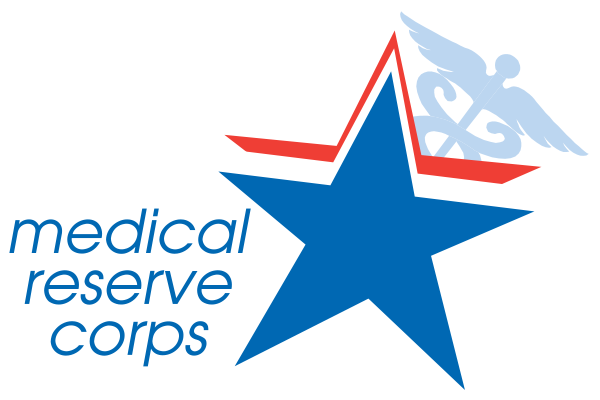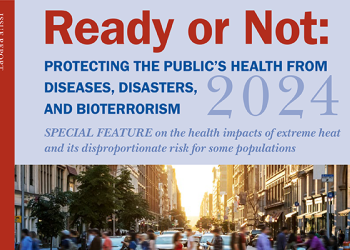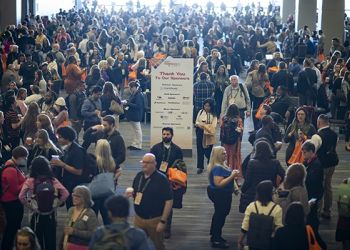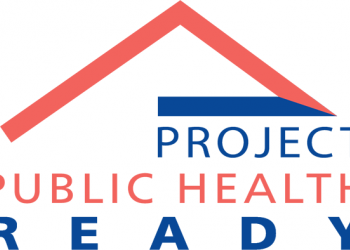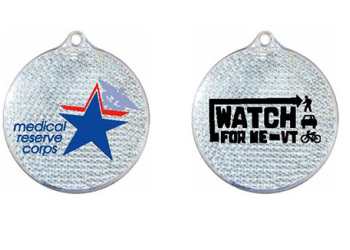In a number of communities, Medical Reserve Corps (MRC) units are housed within universities. This month we share examples of three units from around the country.
Sacred Heart University MRC
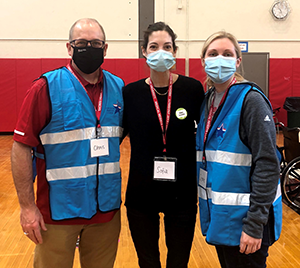
Based in Fairfield, CT, the Sacred Heart University MRC is an interdisciplinary effort that includes leadership from the Colleges of Health Professions and Nursing. The unit sits in Region 1 of Connecticut’s emergency management/homeland security regions and its approximately 175 volunteers go where they are needed. A majority of unit volunteer are students.
“Students are really engaged and have more flexible availability,” said Unit Co-Director Sofia Pendley.
For example, during its COVID-19 response, the unit’s freshmen volunteers, who did not have their own cars, were able to provide support on campus. In addition to students, the unit recruits from the entire university population including faculty, staff, and some alumni.
“We have a variety of people interested in volunteering from all areas of the university,” said Pendley. “That includes volunteers from the registrar’s office and history department as well as disciplines like public health, nursing, social work, and physical therapy.”
During the COVID-19 pandemic, the unit provided testing capacity regionally and on campus. They also supported vaccination clinics, bolstering local public health departments by filling roles including vaccinators, registration, temperature taking, runners, and exit monitors.
“I’m immensely proud of the work we’ve done,” said Pendley. “It’s extraordinary. Volunteers answered the call every time.”
Missions prior to COVID included response to Hurricane Sandy, Stop the Bleed, and provision of health education in local community organizations. During Tropical Storm Hugo last summer, the unit was also ready to provide shelter operations if needed. Sacred Heart University MRC has also hosted tabletop regional exercises and the unit “would love to continue to do those events with partners.”
The unit meets regularly and, to keep volunteers engaged, offers trainings of interest to participants. In the fall they provided Adverse Childhood Experiences (ACEs) training and in the spring offered mental health first aid certification.
University of Minnesota MRC
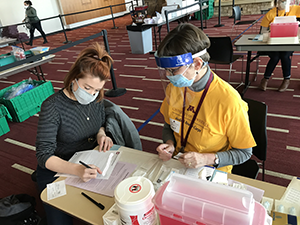
The University of Minnesota MRC was the fourth unit formed in the U.S. Its 2,280 registered volunteers (1,800 active) are students, staff, and faculty from the health sciences. During COVID-19 response, the unit also called on some alumni and retired university personnel. The unit serves as a regional and state resource in addition to serving the university community.
The unit is organized into a variety of strike teams to align with volunteers’ interests and expertise. For example, the Logistics Strike Team helps set up for deployments and drills and consists of about 60 volunteers. Other strike teams include pharmaceutical response, veterinary medicine response, and a behavioral response strike team comprised of practicing faculty including therapists and counselors who are licensed professionals. Faculty members serve as strike team leads and trainings are generally specialized to meet the needs of the strike team.
“We also have a student advisory group that makes us so much stronger,” said MRC Director Kathy Berlin. “Inclusion of the students brings energy and a point of view.”
During COVID, the unit worked 32 separate deployments simultaneously. This included medical triage, screenings at the university health center, community outreach, and testing and vaccination on campus and with community partners. The unit also worked with seven federally qualified health centers to support the most underserved and vulnerable in their community. Among its missions, a group of 10-13 volunteers, primarily students, provided education about COVID via telephone to elderly, non-English speaking residents. The unit also hosted academic deployments that helped to develop activities that students could do to continue their academic credit.
Examples of other unit deployments include behavioral health assessments for newly arriving Afghan refugees, staffing support at a nursing facility whose seniors were displaced due to flooding, and veterinary medical support at a shelter in Iowa supporting 900 displaced companion animals following massive flooding.
While the unit does do some online training, most of its trainings are done in-person and include drills.
“All the drills we’ve done have made a difference,” said Berlin. “People feel more confident.”
The unit also has strong ties within the Minneapolis metro area. Coordinators from seven to eight surrounding counties get together monthly to share information. They also drill together.
Berkeley MRC
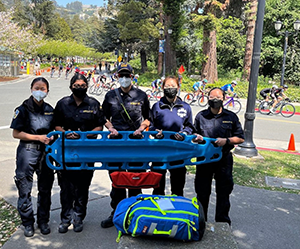
Established in 2014, the Berkeley MRC is a student-led unit comprised of 50 to 100 students who are certified EMTs enrolled at the University of California Berkeley. Housed under the university’s Office of Emergency Management, the unit primarily serves the university campus and city of Berkeley. A board of about 10 students splits unit leadership duties with members serving in designated roles for one-year terms.
EMT certification is a requirement of the unit’s volunteers. Volunteers take a skills test when they first join, then participate in weekly trainings which generally include a short lecture followed by a hands-on training or drill. The unit provides medical safety staffing to on-campus events including sporting events and graduation. It also holds CPR, Stop the Bleed, and First Aid trainings on campus. The unit has also worked with the sheriff’s office on an active shooter drill for Alameda County.
Twice annually the unit organizes, hosts, and runs a mass casualty incident drill (MCI), recruiting volunteers from the campus community to participate. The Berkeley MRC plans to host its next MCI drill jointly with the Alameda County MRC. The units are also planning to do some joint trainings together in shelter operations in preparation for wildfires.
During the COVID-19 pandemic, the unit provided vaccine administration with the city of Berkeley. Volunteers also supported contact tracing and vaccine observation with university health services.
Looking ahead, Unit Director Salil Goyal said the unit is looking forward to starting new collaborations, including holding more joint trainings and preparing for wildfire support.
